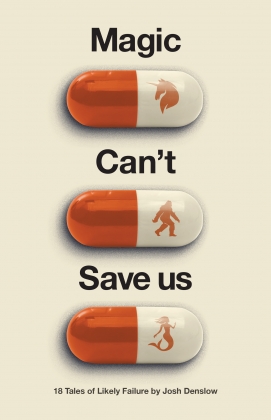
Description
The Chief Investment Officer of a prestigious university sits at the center of modern finance: hundreds of hedge funds, venture capitalists, stock pickers, bond traders, and private equity managers visit him every year, asking for money.
He helms the engine room of the modern academy: the six-billion-dollar endowment he presides over allows the school to compete for students, faculty, prestige, moral purpose—and solvency. The CIO is a winner in bourgeois America's highest dream: "doing well by doing good."
And then all that he thinks he understands—about investing, about his own talents, about every choice and non-choice that brought his life to where it is—begins to fall apart. At first, slowly, amid endless fascinating conversations with his staff, his wildly talented (and sometimes hilarious) trustees, and the motley money managers that march through his office. And then quickly, in an epic showdown with a reclusive, legendary hedge fund manager, his university's richest and most stingy billionaire alumnus.
With its wry appreciation for the absurd, The Counting House lays claim to the title of funniest novel about American business. Underneath the humor, however, is an unprecedented, necessary story of the inner life of investing: a story that reveals how the workings of our daily lives rest upon the market's unforgiving truths.
Reviews
“My favorite finance novel of the past few years…. While I recommend it to anyone interested in the overlapping themes of a finance guy’s mid-life crisis and competing philosophies of investment management, I have one big fear: Was this written specifically for me? In the most micro-niche targeted way? Like, I might enjoy and relate to this book more than anyone else on the planet. It speaks to my interests and experiences in banking and finance. First, there’s its level of specificity to 2000-to-2023-era hedge fund, private equity, quant fund and asset allocation characters. Sernovitz name-drops everybody who was anybody during that period. We meet, as the CIO meets, representatives of practically every institutional investment strategy of the past 25 years. Via the CIO’s jaundiced viewpoint, we get Sernovitz’s most skeptical view of each. And all his skeptical views very much worth reading because they are funny, insightful and multi-layered.”
— Michael Taylor, The Houston Chronicle
"Beautiful, very funny and oddly inspiring. A true and hilarious account of what it is like at the coal face of modern high finance, and also a lovely portrait of what it is like to care very much about doing something very hard.”
— Matt Levine, columnist, Bloomberg Opinion
"Blisteringly funny, intimidatingly smart, and also, somehow, deeply humane."
– Louisa Hall, author of Reproduction
"Not since Liar’s Poker has the lowdown on high finance—its hustlers and hucksters, its VCs and B.S.D.s—been delivered with such insider’s knowledge or such human comedy."
— Garth Risk Hallberg, author of City on Fire
"Gary Sernovitz, long one of my favorite writers, has very few literary parallels or precursors. A novelist who writes about the world of big-money finance, but who's also funny, observant, and emotionally acute? Nevermind that he's also a first-class storyteller with a peerless ear for dialogue, The Counting House takes its place alongside William Gaddis's JR and Richard Powers's Gain as one of the most absorbing and entertaining novels about American business ever written."
— Tom Bissell, author of Magic Hours
"Sernovitz is wise, dark, funny and perhaps most of all, brutally honest. He peels back the veneer of the money management business to reveal the brutal ways this world truly operates. A fun read."
— Gregory Zuckerman, author of The Man Who Solved the Market
"Insightful and fun."
— Kirkus Reviews
Author Bio
Gary Sernovitz has spent the last quarter-century working in and observing how money works, from Goldman Sachs to nearly twenty years at a private equity firm where he is now a managing director. He has also brought his keen writer's eye to America and business through two previous published novels, a non-fiction book, and numerous essays and reviews in The New York Times, The New Yorker online, n+1, The Wall Street Journal, and elsewhere.





